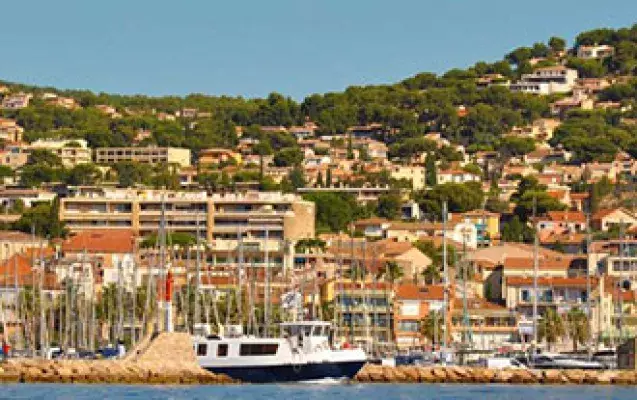


Travel to France
Where do you want to go?
Where do you want to go?
Planning your trip to France from Ireland? Once you've booked your Siblu accommodation at one of our superb parks, it's time to plan your travel.
There are multiple travel options, including direct flights, ferries, and self-drive routes, you can choose the journey that best suits your adventure. This guide will help you navigate the best ways to reach France from Ireland, ensuring a smooth and stress-free start to your Siblu holiday.
Siblu Arrival Days
Siblu offers arrival days on Saturdays only during July and August, with one park Domaine de Litteau in Normandy offering both Saturday and Sunday arrival days. If you cannot arrive on the Saturday due to Ferry crossing availability, please let our team know and we will hold your accommodation for you for your arrival. You can check in and check out of a Siblu park any day of the week.
Ferry Options
Irish Ferries
Dublin to Cherbourg
FIND OUT MORE FROM IRISH FERRIES
Brittany Ferries
Cork to Roscoff
FIND OUT MORE FROM BRITTANY FERRIES >
Rosslare to Cherbourg
Stena Line
Rosslare to Cherbourg
FIND OUT MORE FROM STENA LINE >
Fly Drive Holidays
There are several Siblu holiday parks which are ideal for a fly-drive holiday, either leaving the car behind completely or hiring a car once you are in France.
Find out more about a Siblu parks that are close to airports here.
Useful Information for driving in France
Your holiday journey may well be the longest car ride of the year, so it’s good to know a bit about driving rules in France and it never hurts to get familiar with some of the French road signs.
Speed limits for cars
Motorways 80mph in dry weather or 68mph when wet, but on stretches of main road 55mph, and 49mph on the Paris ring road. Dual carriageways 68mph. Outside built-up areas 55mph. Towns and cities 31mph. Lower speed limits of 50mph outside built-up areas.
68mph on motorways apply in wet weather and to visiting motorists who have held a full driving licence for less than two years. In fog, 31mph when visibility is reduced to 55yards.
Motorway Information
To join a motorway follow the signs with the international motorway symbol or signs with 'par Autoroute'. Signs with 'péage' or 'par péage' lead to toll roads. Emergency telephones, which connect the caller to the police, are sited every 1.25 miles. Most motorways charge tolls, except for certain sections near large towns and cities.
Breakdowns in France
The use of a warning triangle or hazard warning lights is compulsory in the event of a breakdown or accident. It is also compulsory that you have a visibility vest available (normally flourescent yellow) for each occupant in the vehicle. The vests should be stored in the vehicle, so if you do breakdown, you can put them on before getting out.
Accidents
Fire: tel. 18. Police: tel.17. Ambulance: tel. 15. Alternatively dial the European emergency call number 112 and request the service you require. If you are involved in an accident, you must complete a constat à l'amiable before the vehicle is moved. This represents the European Accident Statement Form and must be signed by the other party involved in the accident.
Documentation
A valid UK driving licence is acceptable in France. The minimum age for a driver is 18.
Other useful information
In hours of darkness/dusk you must drive on headlights; driving on sidelights only is not permitted. In fog, mist or poor visibility during the day, you must drive on either two fog lamps, or dipped headlights. Failure to comply with these regulations will lead to an on-the-spot fine.
In towns and cities, you must give way to traffic coming from the right - "priorité à droite", unless otherwise indicated. However, at roundabouts with signs bearing the words "Vous n'avez pas la priorité" or "Cédez le passage", traffic on the roundabout has priority. Where no such sign exists, traffic entering the roundabout has priority.
Outside built-up areas all main roads of any importance have right of way. This is indicated by a red bordered triangle showing a pointed black upward arrow with horizontal bar on a white background; or a yellow diamond within a white diamond, which is most commonly used.
Understanding road signs in France
ACCOTEMENT NON STABILISE - Soft verge
ALLUMEZ VOS PHARES - Switch on lights
CEDEZ LE PASSAGE - Give way
CHAUSSEE DEFORMEE - Uneven road surface
CHANTIER - Road works
FIN D'INTERDICTION DE STATIONNEMENT - End of parking restriction
ITINERAIRE BIS - Alternative route
PEAGE - Toll
POIDS LOURDS - Heavy vehicle route
PRIORITE A DROITE/GAUCHE - Priority to right/left
RAPPEL - Warning! (This literally means 'reminder', i.e. continue with the instruction given on the previous sign.)
ROUTE BARRE - Road closed
DOS D'ANE - Humpback
SENS INTERDIT - No entry
SENS UNIQUE - One way
SERREZ A DROITE/GAUCHE - Keep right/left
STATIONNEMENT INTERDIT - No parking
TOUTES DIRECTIONS - All directions
TRAVAUX - Road works
VIRAGES - Bends
CHEMIN SANS ISSUE - No through road